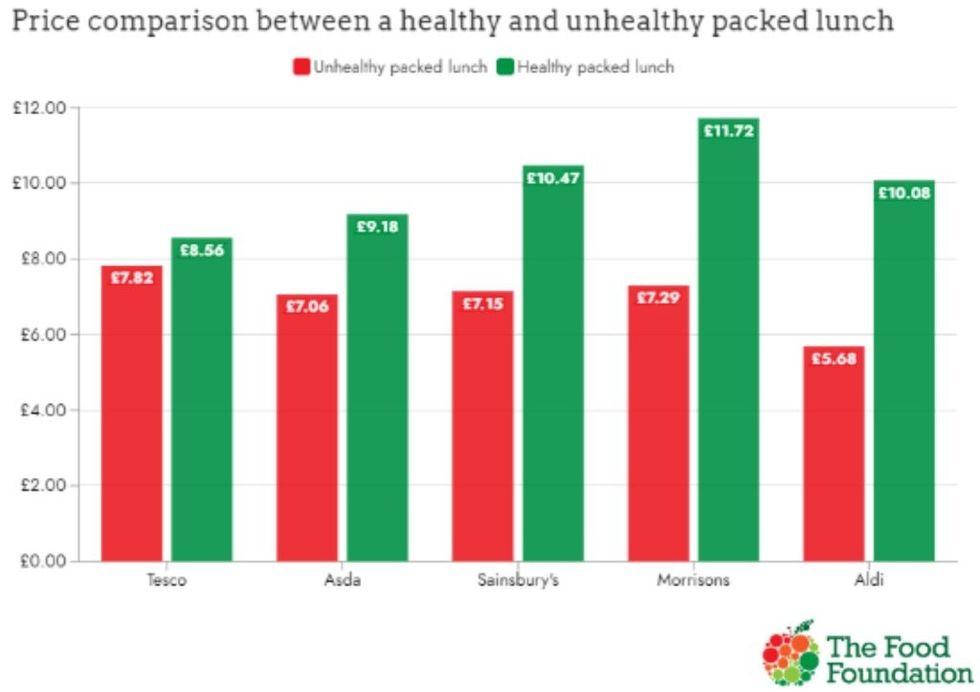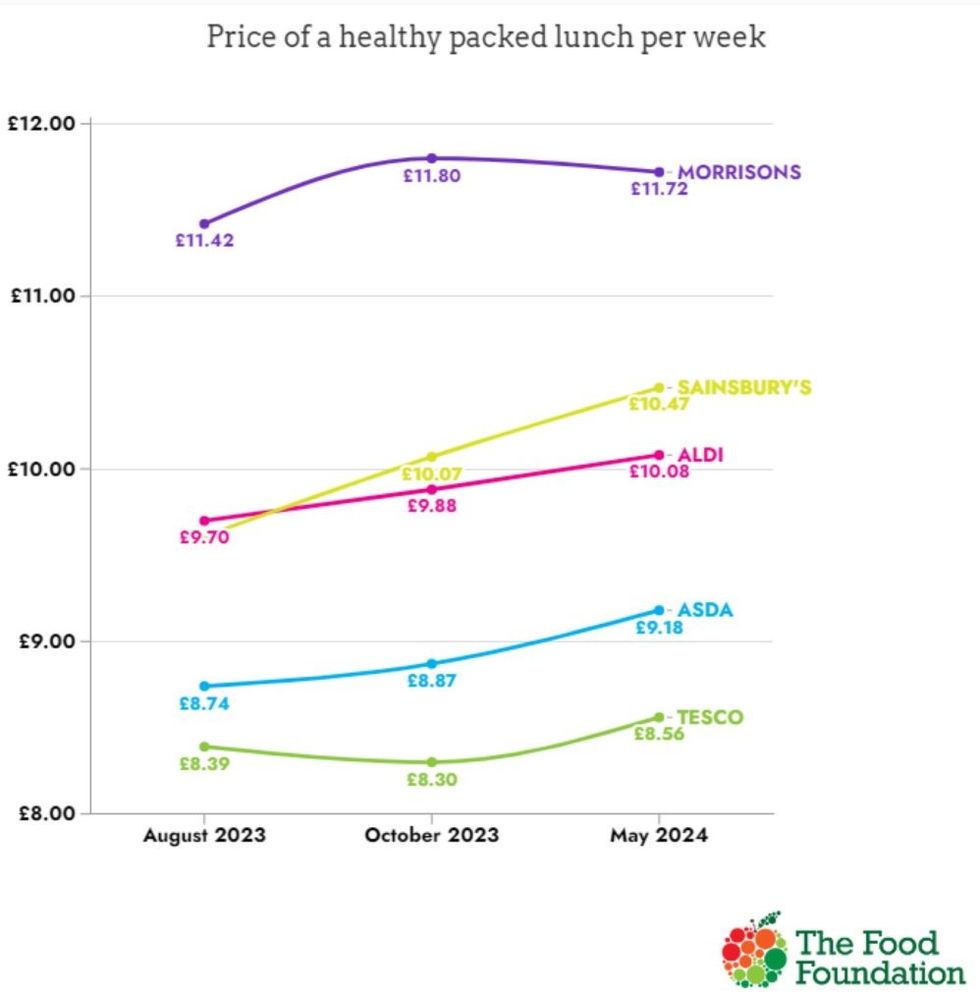New analysis from The Food Foundation as part of its Kid’s Food Guarantee has found that it is 45 per cent more expensive, on average, for parents to feed their children a healthy packed lunch compared to providing unhealthy, less nutritious options
Prices of healthy options have risen by up to nine per cent over the last six months in four out of five major retailers, despite a slowing in food price inflation since last November
The Food Foundation is calling on retailers to ensure that any falls in the price of food are swiftly passed onto consumers and that nutritious items that are staples for a child’s healthy diet are prioritised.
Across all five retailers looked at (Morrisons, Sainsburys, ALDI, Asda and Tesco), the unhealthy packed lunch was substantially cheaper, clearly demonstrating the barriers parents face when trying to feed their children an adequately nutritious diet. Tesco did, however, come out best when compared to others, with a healthy lunch being just nine per cent more expensive than the unhealthy packed lunch. Aldi had the biggest discrepancy in price, with the healthy packed lunch being 77 per cent more expensive than the unhealthy packed lunch.
If parents feel they have no choice but to opt for the cheaper, unhealthy options, this could start to impact on a child's health over time. The unhealthy lunchbox items generally contain more sugar, and less fibre and micronutrients than the healthy lunch. For example, the unhealthy lunch contains white bread instead of wholemeal bread, with white bread more highly processed and containing less fibre than wholemeal. Instead of cheese in the sandwich, there is chocolate spread, which is 50 per cent sugar; and instead of a plain, unsweetened yogurt, there is a flavoured yogurt which contains approximately 2.5 times as much sugar. There are no fruit and veg in the unhealthy lunch compared to four portions in the healthy lunch.
A healthy packed lunch is becoming increasingly costly
Throughout the cost-of-living crisis parents have felt the financial pressure of trying to provide their children with the basic nutritious diet needed to keep them healthy. The report finds that the cost of a weekly packed lunch varied across the retailers from £8.56 to £11.72.
Tesco has consistently been the most economical place to purchase a healthy packed lunch. Healthy items at Morrisons, on the other hand, cost substantially more than at the other four retailers (37 per cent more than at Tesco). The biggest increase in price in recent months has been in Sainsbury’s, where customers would have to spend nine per cent more than they did at the start of the academic year (September 2023) for the same packed lunch.
Implications for children missing out on Free School Meals
There are 900,000 children living in poverty across England who do not currently qualify for the Government’s Free School Meals scheme due to the stringent criteria set by national government. Outside of London, only children from households with earnings below £7,400 a year (after tax, before benefits) are eligible; a threshold that has not increased since 2018. Many parents who can't afford to pay for school lunches opt for packed lunches because they cost less. This research shows unhealthy packed lunches offer a considerable saving; healthy packed lunches do not.
The Food Foundation is calling for Government to extend Free School Meals so that the most deprived children are not priced out of a hot, nutritious lunch with their peers.
In the meantime, The Food Foundation is calling on retailers to offer a lunchbox meal deal on items that are compliant with School Food Standards so parents can easily buy items to make up a week of healthy lunch boxes. This could include wholegrain or 50:50 wheat products such as bread, rolls and wraps; snackable fruit and veg such as apples and carrots; sandwich fillings such as spreads and cheese; and single portion unsweetened yogurt pots.
For more detailed analysis looking at how retailers have supported low income households through the cost of living crisis, The Food Foundation has also today published a new summary briefing, available to read here.
“The Government’s stringent eligibility criteria to qualify for Free School Meals is leaving hundreds of thousands of children who are living in poverty but missing out on them at risk of malnutrition," said Shona Goudie, Policy and Advocacy Manager, The Food Foundation. "Children from families with incomes not low enough to qualify for a Free School Meal and yet unable to afford lunch from the school canteen are left reliant on unhealthy packed lunches. No one should be priced out of being able to provide healthy food for their children and retailers need to do more to support families to afford the food they need.”
Caroline, a Food Foundation Food Ambassador and mother from Stockport said, “Sometimes you have to buy that cheapest product, but you do not want your child to be bullied because they are eating that cheaper product, and you know that will happen. My daughter suffered three years of severe bullying because she was on packed lunches at the time and I had to buy the cheaper products.”








